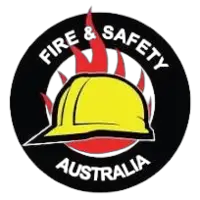
This role has a low level of AI exposure. Core skills such as adaptability, social intelligence, and complex physical tasks remain beyond the capabilities of current AI.
Explore all careersA Volunteer Firefighter responds to emergencies, extinguishing fires and conducting rescues while working as a team and adhering to safety procedures.
Get qualified to work as a Volunteer Firefighter with a course recognised across Australia. Speak to a training provider to learn more.






In Australia, Volunteer Firefighters are generally not paid for their work. You may be given some funds to cover your expenses but you will be donating your time for free. Volunteer Firefighters often have another job as well as their volunteer firefighting role.
 Courses.com.au Team
Courses.com.au Team
There has been an increase in the number of people working in this industry over the last five years. There are currently 12,200 people employed as a firefighter in Australia and many more who do the work as a volunteer. Volunteer Firefighters work across various regions of Australia.
Source: Australian Government Labour Market Insights
 Courses.com.au Team
Courses.com.au Team
To become a Volunteer Firefighter, consider enrolling in a Certificate IV in Conservation and Land Management. This course addresses a range of topics including revegetation programs and project management. You could also consider a Diploma of Conservation and Land Management.
 Courses.com.au Team
Courses.com.au Team
Browse occupations related to Volunteer Firefighter



For those aspiring to serve as volunteer firefighters, Asia's vibrant state of Victoria offers a selection of comprehensive Volunteer Firefighter courses in Victoria. These courses cater to individuals with no prior experience and aim to equip learners with the vital skills necessary for effective firefighting and emergency management. The courses listed are conducted by recognised training providers such as FSA and Thomson Bridge, ensuring high-quality training is delivered across the state.
One of the most sought-after beginner courses is the Certificate II in Fire Protection Inspection and Testing CPP20521. This qualification provides foundational knowledge regarding the inspection and upkeep of fire safety systems, which is crucial for anyone looking to engage in the field of fire protection. Moreover, aspiring firefighters can also gain practical skills through the Confine Small Workplace Emergencies in a Facility PUAFER008 course, enhancing their readiness to tackle emergencies effectively.
Additionally, participants may enrol in the Operate Breathing Apparatus Open Circuit PUAFIR207 course provided by Thomson Bridge. This course teaches learners how to use breathing apparatus correctly in hazardous situations. Another critical course is the Perform Land Based Swiftwater and Floodwater Rescue and Recovery PUASAR001, which prepares volunteer firefighters to conduct rescues in challenging water conditions, an invaluable skill in Victoria's diverse landscapes and climate-related emergencies.
These courses are further complemented by associated fields of study, enhancing the overall readiness of volunteer firefighters. Prospective students can explore Government and Public Sector courses, which are essential for understanding the regulatory frameworks surrounding firefighting. Furthermore, studies in Environment and Sustainability and Public Safety are beneficial for developing a well-rounded perspective on community safety and environmental responsibility.
Whether you are located in bustling Melbourne or the picturesque regions of rural Victoria, there are numerous opportunities to start a rewarding career as a volunteer firefighter. By enrolling in these Volunteer Firefighter courses in Victoria, participants will not only gain practical skills but also contribute significantly to their communities, making a lasting impact on public safety and emergency preparedness across the state.